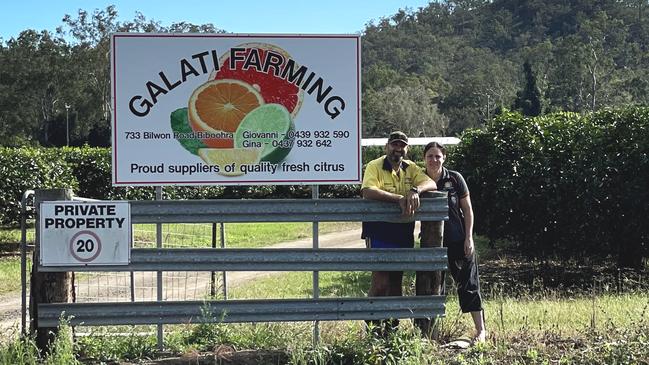Farmers sour over Mexican lime imports
The world’s biggest lime producer is on the cusp of being granted permits to export limes into Australia, sparking concern among domestic citrus growers.

Citrus growers fear the lime market will be open to diseases and flooded with limes from Mexico, after the federal government declared that the world’s biggest producer could export its fruit to Australia.
Lime growers say the ruling threatens to wipe out the local market and create a pathway for pests and diseases to also be imported. Gina Galati, who grows 80ha of citrus trees on her farm near Mareeba, about 60km west of Cairns, said flooding the market with Mexican limes was likely to make growing the fruit in Australia unviable.
“It would be devastating and heartbreaking to the future of our family farm,” Ms Galati said. “Like everything in farming, your profit margin is narrowing with the ever-increasing costs of transport and electricity.
“Limes have a very small window for a good market price. If we’ve got more limes in the market it would literally crash the lime market.”
Ms Galati said she was also concerned that the imports would bring diseases.
“Something will always get through,” she said. “Mexico will never have the same standards and requirements that Australian farmers have.”
Australia produces about 23,000 tonnes of limes a year. Mexico produces about three million tonnes.
Half of the approximately 380 Australian lime growers are based in Queensland.
The other major growing regions are Lismore in northern NSW, the Riverland in South Australia and Darwin in the Northern Territory.
The agriculture department’s decision to permit the import of Mexican limes followed a five-year process assessing the risks.
It determined there were 20 pests associated with limes from Mexico, but that they could be ameliorated by biosecurity import conditions and management measures.
The department will now verify that Mexico can meet the import conditions before issuing import permits.
A department spokesman said that as a World Trade Organisation member, Australia was required to assess market access requests and develop the least trade-restrictive and scientifically justified import conditions where required.
“In meeting these international obligations, however, all countries, including Australia, are able to maintain a level of protection it considers appropriate to prevent pests and diseases establishing within its territory,” the spokesman said.
“Australia works effectively with its trading partners to ensure that imports are accepted only when it is confident the risks of pests and diseases can be managed.”
Queensland MP Bob Katter said he was not satisfied that quarantine protocols could negate the threat of pests.
“In Mexico, limes and other citrus are produced on farms that have vastly different regulations to those imposed on Australian farms,” he said.
“It is clear that this decision will decimate Australia’s $768m per year citrus industry.”
FNQ Growers president Joe Moro said the issue had created uncertainty in the industry, which was mostly made up of family farms.







To join the conversation, please log in. Don't have an account? Register
Join the conversation, you are commenting as Logout